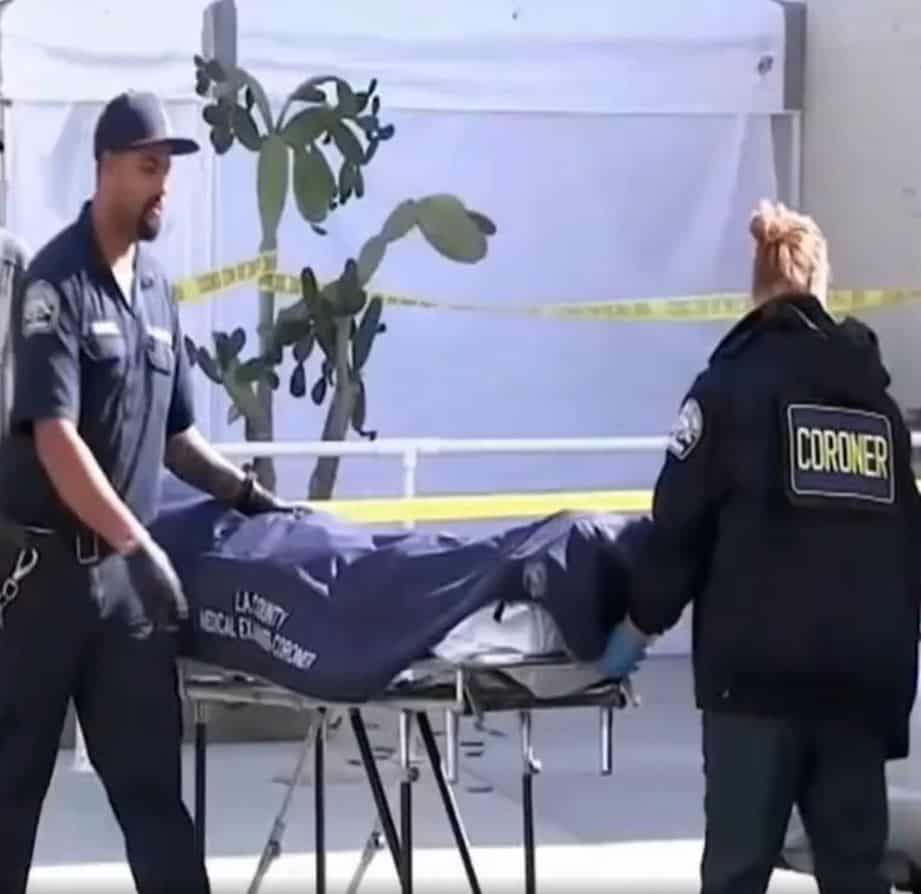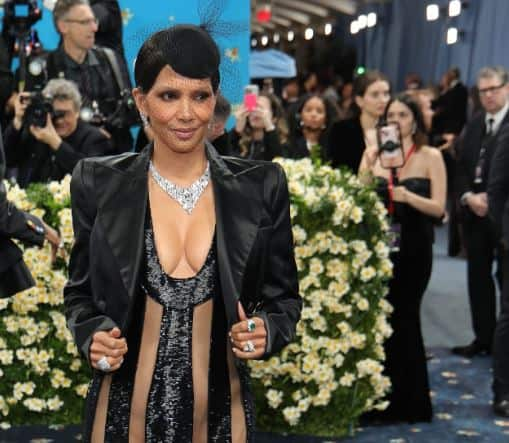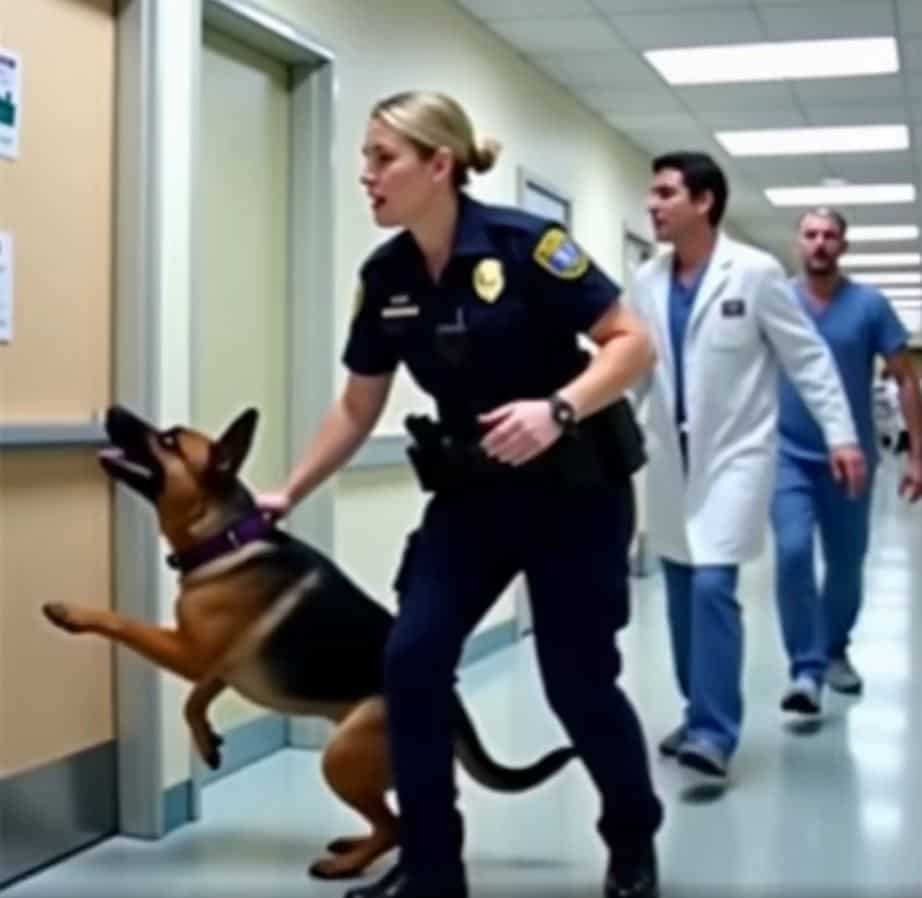
Most women will likely visit a gynecologist from time to time to ensure their health is in check and to help prevent any potential health issues.
And while we women know just how important this appointment is, we still tend to put it off. For most of us, it’s uncomfortable to undress in front of someone in that setting.
To make your visit a little more pleasant, here are some things you should avoid when going to the gynecologist…
1. Don’t panic
Do you feel nervous about your gynecologist visit because the thought of exposing yourself to your doctor feels totally uncomfortable? You’re definitely not alone—many women feel the same way. Honestly, there are few things more awkward than sitting in a gynecological exam chair, legs spread wide, while someone examines you. But here’s the thing: these exams are crucial because they’re the best way to detect and treat sexually transmitted diseases or cancers like breast and cervical cancer at an early stage.
That’s why you need to push past your fear. Remember, your doctor sees plenty of naked women every day—it’s just part of their job. They aren’t focusing on things like toned thighs, painted toenails, or whether or not you’ve shaved. They’re focused on your health. And that’s something you can remind yourself of the moment you start feeling self-conscious. Your doctor isn’t worried about how you look — they’re just there to make sure you’re healthy.
2. Showing up without showering?
Even though your doctor doesn’t care if you shave or have hair down there, they obviously don’t want to examine someone who hasn’t taken care of themselves.
Not only will this make your doctor’s job easier, but it will also make you feel better. So, put on fresh underwear that makes you feel comfortable. It’s all about ensuring you feel good during the appointment.
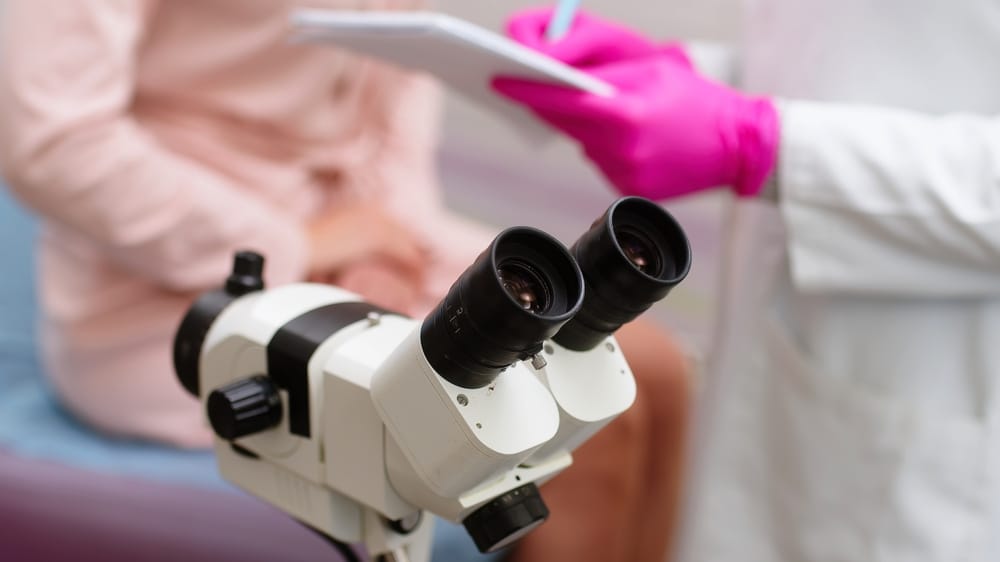
However, many gynecologists don’t recommend douching at all, as it can disrupt the natural balance of vaginal flora and its acidity. Instead, it is advised to rinse or wash the vagina with just warm water before a pelvic exam. Additionally, it’s best to avoid using any vaginal creams or foams for 48 hours prior to the exam.
3. Hiding symptoms
Have you been feeling like something’s off down there for a while? Maybe you’ve been experiencing constant itching but don’t want to bring it up because it feels too uncomfortable? In this case, you need to step out of your comfort zone because your doctor can only help you if you’re honest with them.
There’s no point in hiding symptoms. If something feels wrong, talk to your doctor about it. They’re there to help, not judge.
4. Avoid sex
Some experts suggests refraining from sex for up to 24 hours before a gynecological appointment. Sex can sometimes cause skin irritation, which could interfere with the ability to accurately diagnose certain conditions.
While condoms can protect against infections, some types contain spermicide, which may affect the vaginal pH levels. Additionally, it’s best to avoid using personal lubricants before the appointment, as this helps ensure the accuracy of cervical screening tests.
5. Don’t Google
You’ve already spent hours online, searching for answers to your symptoms, and now you’re ready to launch into a long explanation to your doctor about everything you’ve read and all the diseases you think you might have.
But here’s the thing: your doctor is the expert, not Google. While it’s natural to want to understand what’s going on with your body, your doctor is trained to make the diagnoses. He doesn’t need you to walk him through your findings from the internet. Trust him to do his job. Let him guide the conversation and tell you what he thinks is going on. After all, that’s what he’s there for.
6. Having questions but not asking them
It’s natural to have questions, but holding them back can leave you feeling unsure. Don’t be afraid to ask your gynecologist anything that’s on your mind.
Do you have a lot of questions about your body, birth control, or future pregnancy, but feel too embarrassed to ask? There’s no need to worry! Your doctor is the perfect person to talk to about these things. Be brave and discuss what matters to you. Remember, every doctor is bound by confidentiality, so you don’t have to worry about them sharing your questions or concerns with anyone else.
7. The chair
Do you find the sight of the gynecological chair a bit intimidating? At first glance, especially during your very first visit, it can seem pretty daunting. But hey, it’s just a chair, so don’t let it scare you. When you’re positioned correctly, it allows your abdomen to be examined thoroughly. That’s why it’s important to stay relaxed and not tense up.

The exam shouldn’t hurt, so there’s no need to be anxious. However, your doctor will let you know if you’re too tense or not sitting properly.
Here are a few tips to help you stay comfortable during the exam…
8. Slide forward
Gynecologists often have to remind patients several times to move further forward in the chair.
To make things easier for your doctor, make sure you’re sitting far enough forward so they can perform the examination properly. Simply shift your hips toward the doctor and slide forward a little. This will ensure a smoother and more effective exam.
9. First-time gynecologist visit
For a young woman who has never been to a gynecologist, scheduling an appointment could be a good idea – but that doesn’t mean you have to undergo a gynecological exam right away.
You could simply have an initial consultation with the gynecologist instead. It’s not assumed that an exam would take place during the first visit, so it’s important for younger women to understand this. Additionally, it’s recommended to bring a partner or a friend for support during the first appointment.
10. Write down your questions
For women who have been to the gynecologist before, there’s a helpful tip that some gynecologists recommend: prepare by writing down the questions you want answered, so you don’t forget to ask them due to stress.
Also, don’t choose your gynecologist based on their gender, unless you have specific reasons for doing so.
11. Remove your tampon
It’s important to remember to always remove your tampon after use.
”One rare situation that can happen is when someone forgets a tampon for several days. This can cause bacteria to grow, leading to a strong, unpleasant odor. But it’s not the body’s fault — it’s the tampon. Once you remove it, the issue is easily resolved. A forgotten tampon can smell pretty bad, but it’s a simple problem to fix. I don’t think it’s anything to be ashamed of either,” one gynecologist shares.
Do you dread going to the gynecologist? What are your biggest fears?
Are you worried about having to undress, or maybe concerned about the possibility of discovering a health issue?
Do you still go for regular checkups despite your fears? If you’d like, share your thoughts with us in the comments on Facebook!
Sofia Vergara, known as one of Hollywood’s most gorgeous stars, just turned 51 and still looks amazing!
She celebrated her special day with family and friends in Italy. In a post on Instagram, she shared a picture of herself on a patio with a beautiful water view behind her. The caption, which she translated from Spanish, said, “Waking up here on my 51st birthday! Even though my knees are starting to hurt, I feel healthy and full of energy—and happiness—to enjoy life! Thank you for all the lovely messages.”

Sofia’s birthday post received tons of comments from her fans and friends who sent her lots of birthday wishes.
Heidi Klum, the model, expressed her love by saying, “I adore you, Sofia. Having you in my life is such a blessing.” Comedian Howie Mandel chimed in, saying, “Happy birthday! @heidiklum is so lucky to have you in her life.”
Sarah Hyland, Sofia’s co-star from Modern Family, simply reacted with, “HAAAAAAAA…”
Sofia’s son Manolo, whom she shares with her ex-husband Joe Gonzalez, also joined in the celebration. He posted a cute reel filled with photos, including some from when he was little, and wrote, “Happy forty ten!!!! I love you so much, Ma, that the next 40+10 will be even better!!!!!!!”
Jeremy Maguire, who played Sofia’s on-screen son Joe Pritchett, wished her a happy birthday, saying, “Happy birthday, gorgeous. I will always love you.”
Recently, Sofia celebrated hitting 30 million followers on Instagram. She shared, “30,000,000 followers!! Thank you all! Thank you for always being there for me! Thank you for supporting everything I do!! Besos from Italy!!”

Sofia clearly had an amazing time celebrating her birthday, and you could tell just by looking at the fun photos she shared. In those pictures, she and her friends were blowing out colorful firecracker candles on a cake and enjoying a special birthday dinner with music. But what caught a lot of people’s attention was the fact that her husband, Joe Manganiello, was missing from the celebration.
Joe did share a birthday message for Sofia, but some fans thought it felt a bit distant. He posted a low-quality picture of them together and simply said, “¡¡¡Feliz Cumpleaños Sofía!!!”
Fans flooded the comments with their worries. One person wrote, “Joe, I hope you guys are okay. That birthday wish seemed really different and cold compared to what you usually do! [sad face emoji]”
Another fan commented, “Something feels off. He hasn’t said anything about her photos she’s been posting. Hmmm….”

Sofia celebrated her special day alongside her puppy Bubbles, who was turning 10 years old. “Happy 10th birthday, my adorable but fierce Bubbles! Even if you bite me a million times, I will always love you,” she posted.
Heidi Klum chimed in with, “Happy Birthday Bubbles from your auntie Heidi,” and a fan added, “She bites you because you’re so sweet!!!”
Wishing a very Happy Birthday to Sofia Vergara, with many more to celebrate in the future.
Please SHARE this article with your family and friends on Facebook.
She celebrated her special day with family and friends in Italy. In a post on Instagram, she shared a picture of herself on a patio with a beautiful water view behind her. The caption, which she translated from Spanish, said, “Waking up here on my 51st birthday! Even though my knees are starting to hurt, I feel healthy and full of energy—and happiness—to enjoy life! Thank you for all the lovely messages.”

Sofia’s birthday post received tons of comments from her fans and friends who sent her lots of birthday wishes.
Heidi Klum, the model, expressed her love by saying, “I adore you, Sofia. Having you in my life is such a blessing.” Comedian Howie Mandel chimed in, saying, “Happy birthday! @heidiklum is so lucky to have you in her life.”
Sarah Hyland, Sofia’s co-star from Modern Family, simply reacted with, “HAAAAAAAA…”
Sofia’s son Manolo, whom she shares with her ex-husband Joe Gonzalez, also joined in the celebration. He posted a cute reel filled with photos, including some from when he was little, and wrote, “Happy forty ten!!!! I love you so much, Ma, that the next 40+10 will be even better!!!!!!!”
Jeremy Maguire, who played Sofia’s on-screen son Joe Pritchett, wished her a happy birthday, saying, “Happy birthday, gorgeous. I will always love you.”
Recently, Sofia celebrated hitting 30 million followers on Instagram. She shared, “30,000,000 followers!! Thank you all! Thank you for always being there for me! Thank you for supporting everything I do!! Besos from Italy!!”

Sofia clearly had an amazing time celebrating her birthday, and you could tell just by looking at the fun photos she shared. In those pictures, she and her friends were blowing out colorful firecracker candles on a cake and enjoying a special birthday dinner with music. But what caught a lot of people’s attention was the fact that her husband, Joe Manganiello, was missing from the celebration.
Joe did share a birthday message for Sofia, but some fans thought it felt a bit distant. He posted a low-quality picture of them together and simply said, “¡¡¡Feliz Cumpleaños Sofía!!!”
Fans flooded the comments with their worries. One person wrote, “Joe, I hope you guys are okay. That birthday wish seemed really different and cold compared to what you usually do! [sad face emoji]”
Another fan commented, “Something feels off. He hasn’t said anything about her photos she’s been posting. Hmmm….”

Sofia celebrated her special day alongside her puppy Bubbles, who was turning 10 years old. “Happy 10th birthday, my adorable but fierce Bubbles! Even if you bite me a million times, I will always love you,” she posted.
Heidi Klum chimed in with, “Happy Birthday Bubbles from your auntie Heidi,” and a fan added, “She bites you because you’re so sweet!!!”
Wishing a very Happy Birthday to Sofia Vergara, with many more to celebrate in the future.
Please SHARE this article with your family and friends on Facebook.
Reba McEntire is a real country superstar. Ever since she stepped onto the stage in the late 1970s, she has been loved by fans all over the world.
In her personal life, she has been married two times and has one son named Shelby.

However, despite her enormous success and the infatuating smile on her face, Reba has experienced a number of heartbreaks.
In 2022, Reba experienced a heartbreaking loss when her mother, Jacqueline, passed away from cancer. This was really tough for Reba because they shared a very close and loving bond as mother and daughter.
Reba expressed her feelings on social media, saying, “She lived a wonderful, full, and healthy life and was completely ready to leave. The cancer may think it won, but we’re giving all the credit to God for choosing the right time for her to go home.”
Back in the day, when she was young, Jacqueline wished to become a singer herself, but since her dream didn’t turn into a reality, she taught her daughter how to sing.
In her personal life, she has been married two times and has one son named Shelby.

However, despite her enormous success and the infatuating smile on her face, Reba has experienced a number of heartbreaks.
In 2022, Reba experienced a heartbreaking loss when her mother, Jacqueline, passed away from cancer. This was really tough for Reba because they shared a very close and loving bond as mother and daughter.
Reba expressed her feelings on social media, saying, “She lived a wonderful, full, and healthy life and was completely ready to leave. The cancer may think it won, but we’re giving all the credit to God for choosing the right time for her to go home.”
Back in the day, when she was young, Jacqueline wished to become a singer herself, but since her dream didn’t turn into a reality, she taught her daughter how to sing.
Skin irritation in the groin area is a widespread concern that can affect people of all genders and ages.
The groin is a warm, moist, and often confined environment, which makes it a prime area for various dermatological issues.

Understanding the causes, symptoms, and safe treatments of these conditions is essential for maintaining good hygiene and skin health.What They Are
Ingrown hairs occur when hair curls back or grows sideways into the skin instead of rising up from it. This often causes red, itchy bumps that resemble pimples. In some cases, ingrown hairs can become infected, resulting in painful pus-filled lesions.
Causes
Shaving, waxing, or plucking hair too closely
Wearing tight clothing that causes friction
Naturally curly or coarse hair
Symptoms
Small, round bumps that may contain pus
Redness and inflammation
Itching or discomfort in the affected area
Treatment
Apply a warm compress to reduce swelling
Use exfoliating cleansers to remove dead skin
Avoid shaving until the area heals
In severe cases, consult a dermatologist
The groin is a warm, moist, and often confined environment, which makes it a prime area for various dermatological issues.

Understanding the causes, symptoms, and safe treatments of these conditions is essential for maintaining good hygiene and skin health.What They Are
Ingrown hairs occur when hair curls back or grows sideways into the skin instead of rising up from it. This often causes red, itchy bumps that resemble pimples. In some cases, ingrown hairs can become infected, resulting in painful pus-filled lesions.
Causes
Shaving, waxing, or plucking hair too closely
Wearing tight clothing that causes friction
Naturally curly or coarse hair
Symptoms
Small, round bumps that may contain pus
Redness and inflammation
Itching or discomfort in the affected area
Treatment
Apply a warm compress to reduce swelling
Use exfoliating cleansers to remove dead skin
Avoid shaving until the area heals
In severe cases, consult a dermatologist

Someone who made videos and songs for YouTube died suddenly at the age of 30.
A message on Alexandra’s Instagram page said she had died. She was known as Pretty Pastel Please.
People have said that the Australian influencer’s death came as a shock and happened quickly.
“This comes as a shock to all of us,” the statement said. “Her family and friends have asked for privacy while they deal with their grief.”

“We would ask that you respect their wishes – they appreciate all of your support but need time to heal in private.”
There was a picture of the influencer smiling with the statement.
It’s been very sad, and thousands of fans have sent their condolences and sympathy.
One person on social media said, “I’m honestly so upset by this news.”
“I watched Alex for so many years, she began to feel like a friend.”
“My heart is in my stomach, I’m so saddened by this news praying for her family,” one person said.
“Seeing her grow and change over the years feels so unreal,” a third fan said.
She told her fans that she would be streaming on Twitch three days a week weeks before she died.
She also posted touching pictures of herself holding Archie, her beloved parrot.
More than 120,000 people followed Alexandra on Instagram.
With more than 690,000 subscribers, she also had a YouTube channel.
She posted everything from reviews of products to vlogs.
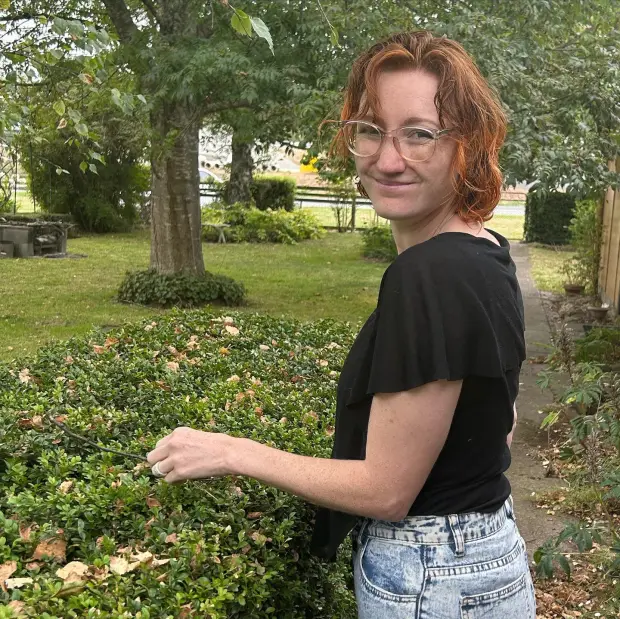
This video of Alexandra eating only food from Japanese 7-Elevens for a week got over 4 million views.
She announced last year that she had reached the big goal of 1,000 Instagram posts.
MOURNING FANS
Her excitement grew when she reached 3,000 Twitch followers.
“I’m a world away from who I was six months ago and God it feels so good,” said she.
Once the influencer was told she had obsessive-compulsive disorder and ADHD in 2022, she opened up.
In a long social media post, she talked about how she came up with the name Pretty Pastel Please.
“Pretty Pastel Please is a persona born of trauma, deflection, and mental illness,” she pointed out.
“A bright colorful character that can look past their pain and put on a smile.”

Thumb Rings: The Hidden Meaning Behind This Bold Statement
Rings have always been more than just stylish accessories — they’re symbols packed with meaning. Throughout history, different cultures have used rings to signify power, status, loyalty, and even spiritual protection.
Most of us know the classic associations:
The ring finger is all about love, marriage, and lifelong commitment.
The index finger reflects leadership, ambition, and authority.
But what about the thumb?
At first glance, a thumb ring might just look like a bold fashion move — edgy, unconventional, maybe even rebellious. But there’s far more to it than meets the eye.
Across various cultures and eras, wearing a ring on the thumb has symbolized strength, independence, wealth, and personal freedom. It often represents someone who’s confident, self-assured, and unafraid to stand out. Whether it’s a quiet nod to inner power or a loud declaration of individuality, the thumb ring speaks volumes.
So, if you’re already rocking a thumb ring — or thinking about it — you could be tapping into an ancient tradition that says more about your personality and values than you might realize.
Let’s explore what this powerful piece of jewelry might be revealing about you.
Halle Berry Shocks at the Met Gala 2025 with Daring Look
Hollywood icon Halle Berry made a remarkable statement at the Met Gala 2025, captivating onlookers with a bold and daring outfit that eschewed conventionality. The 58-year-old actress graced the event alongside a plethora of A-listers, as they commemorated the annual extravaganza, directed by the influential Anna Wintour. On this fashionable night, Halle opted for a stunningly sheer gown, stirring up a whirlwind of reactions from fans and critics alike.

A Daring Fashion Choice
Berry’s ensemble was a work of art, designed to reflect the evening’s theme: Superfine: Tailoring Black Style. The actress donned a breathtaking black gown adorned with sheer panels that left little to the imagination, showcasing her figure while exuding confidence. The combination of a plunging neckline and figure-hugging silhouette accentuated her curves beautifully, while the layers flowed elegantly down to the floor, creating a dramatic effect as she walked the blue carpet.

In a bold move that left many gasping, Halle chose to forgo traditional lingerie, allowing her outfit to command attention. The sheer fabric of the gown highlighted her toned physique, with some observers commenting on the audacity of her choice. To complete her striking look, she paired the gown with a chic cropped satin jacket that added an air of sophistication and an eye-catching fascinator, along with sparkling jewelry that added a touch of glamour. This combination not only enhanced her overall appearance but also made a profound statement about personal expression and the breaking of fashion norms.

The Response from Fans and Critics
As expected with such a provocative outfit, Halle’s fashion choice elicited a range of reactions on social media. While some fans celebrated her confidence and beauty, others expressed disapproval, questioning the appropriateness of her attire. Comments flooded in, with one user asking, “Pls where the panties?” and another suggesting, “Should’ve covered the private part.” Such remarks underscore the ongoing debate about women’s attire and societal norms surrounding modesty, prompting discussions about the freedom of expression in fashion.
However, not all reactions were critical. Many fans praised Halle’s appearance, with comments like “58 is the new 30!” and “Still beautiful as ever!” Clearly, her boldness resonated with a significant portion of the audience, emphasizing the complex relationship between public perception and personal expression in fashion. The varied responses capture the essence of fashion as an art form—where every ensemble opens up avenues for discussion on beauty, empowerment, and individual style.
Understanding the Theme: Superfine: Tailoring Black Style
The 2025 theme, Superfine: Tailoring Black Style, was announced well in advance, with roots tracing back to an exhibition at the Costume Institute. This theme pays homage to the rich history of Black dandyism, which spans from the 18th century through its revival in the Harlem Renaissance of the 1920s and 30s. The concept of dandyism revolves around the idea of using fashion as a medium for self-expression and societal rebellion, often characterized by flamboyant and extravagant styles. This historical context not only enriches the theme but also connects the present-day celebration of Black artisans and designers.
The emphasis on tailored styles showcased at this year’s event serves to explore how fashion has historically been employed both as a tool of oppression and a means of liberation. The theme draws inspiration from the book Slaves to Fashion: Black Dandyism and The Styling of Black Diasporic Identity, authored by Monica L. Miller, who chairs the Africana studies department at Barnard College. This initiative marks a significant shift towards diversifying the Met’s collections and actively addressing historical biases prevalent in curatorial practices, encouraging a broader discourse on race, culture, and identity in the world of fashion.
Influence and Impact of the Met Gala
The Met Gala is not merely a celebration of fashion; it serves as a platform for cultural dialogue and expression. Each year, it attracts not only the crème de la crème of Hollywood but also influential figures and artists, all gathering under the auspices of celebrating creativity and pushing the boundaries of conventional fashion. The event has become synonymous with groundbreaking fashion statements, and Halle Berry’s bold choice stands as a testament to this legacy, reminding us how attire can speak volumes about an individual’s identity and values.
Moreover, Anna Wintour’s enduring leadership, now marking her 25th year at the helm, has significantly shaped the goals and narratives of the gala. In response to speculations about her control over guest outfits, Wintour clarified, “No,” she stated with a laugh, emphasizing the collaborative nature of the fashion community where many seek guidance but ultimately express themselves freely. This intersection of collaboration and individuality is what makes the Met Gala a unique spectacle, a celebration of both personal expression and collective artistic vision.
A New Era in Fashion Representation
This year’s gala marks a pivotal moment in shedding light on Black fashion and its historical significance. With Andrew Bolton, the Curator in Charge, advocating for a more inclusive and accessible representation of fashion, it seems that the Met Gala is evolving to embrace a wider spectrum of voices and styles. By highlighting Black dandyism, the exhibition and its corresponding theme encourage attendees to reflect on the cultural implications of their fashion choices, bridging the past and present. The diversity of styles presented this year serves not just as a celebration of aesthetic beauty, but also as a statement of cultural identity and pride.
In conclusion, Halle Berry’s stunning appearance at the Met Gala 2025 not only sparked a conversation about fashion and modesty but also highlighted the importance of cultural representation in the fashion industry. As the Met continues to diversify its narrative and celebrate the rich tapestry of Black style, it reaffirms fashion’s role as a powerful tool for expression, identity, and societal change. This event not only showcases the latest trends but also serves as a reminder of the deeper conversations about race, identity, and the histories that shape who we are today.
Hollywood icon Halle Berry made a remarkable statement at the Met Gala 2025, captivating onlookers with a bold and daring outfit that eschewed conventionality. The 58-year-old actress graced the event alongside a plethora of A-listers, as they commemorated the annual extravaganza, directed by the influential Anna Wintour. On this fashionable night, Halle opted for a stunningly sheer gown, stirring up a whirlwind of reactions from fans and critics alike.

A Daring Fashion Choice
Berry’s ensemble was a work of art, designed to reflect the evening’s theme: Superfine: Tailoring Black Style. The actress donned a breathtaking black gown adorned with sheer panels that left little to the imagination, showcasing her figure while exuding confidence. The combination of a plunging neckline and figure-hugging silhouette accentuated her curves beautifully, while the layers flowed elegantly down to the floor, creating a dramatic effect as she walked the blue carpet.

In a bold move that left many gasping, Halle chose to forgo traditional lingerie, allowing her outfit to command attention. The sheer fabric of the gown highlighted her toned physique, with some observers commenting on the audacity of her choice. To complete her striking look, she paired the gown with a chic cropped satin jacket that added an air of sophistication and an eye-catching fascinator, along with sparkling jewelry that added a touch of glamour. This combination not only enhanced her overall appearance but also made a profound statement about personal expression and the breaking of fashion norms.

The Response from Fans and Critics
As expected with such a provocative outfit, Halle’s fashion choice elicited a range of reactions on social media. While some fans celebrated her confidence and beauty, others expressed disapproval, questioning the appropriateness of her attire. Comments flooded in, with one user asking, “Pls where the panties?” and another suggesting, “Should’ve covered the private part.” Such remarks underscore the ongoing debate about women’s attire and societal norms surrounding modesty, prompting discussions about the freedom of expression in fashion.
However, not all reactions were critical. Many fans praised Halle’s appearance, with comments like “58 is the new 30!” and “Still beautiful as ever!” Clearly, her boldness resonated with a significant portion of the audience, emphasizing the complex relationship between public perception and personal expression in fashion. The varied responses capture the essence of fashion as an art form—where every ensemble opens up avenues for discussion on beauty, empowerment, and individual style.
Understanding the Theme: Superfine: Tailoring Black Style
The 2025 theme, Superfine: Tailoring Black Style, was announced well in advance, with roots tracing back to an exhibition at the Costume Institute. This theme pays homage to the rich history of Black dandyism, which spans from the 18th century through its revival in the Harlem Renaissance of the 1920s and 30s. The concept of dandyism revolves around the idea of using fashion as a medium for self-expression and societal rebellion, often characterized by flamboyant and extravagant styles. This historical context not only enriches the theme but also connects the present-day celebration of Black artisans and designers.
The emphasis on tailored styles showcased at this year’s event serves to explore how fashion has historically been employed both as a tool of oppression and a means of liberation. The theme draws inspiration from the book Slaves to Fashion: Black Dandyism and The Styling of Black Diasporic Identity, authored by Monica L. Miller, who chairs the Africana studies department at Barnard College. This initiative marks a significant shift towards diversifying the Met’s collections and actively addressing historical biases prevalent in curatorial practices, encouraging a broader discourse on race, culture, and identity in the world of fashion.
Influence and Impact of the Met Gala
The Met Gala is not merely a celebration of fashion; it serves as a platform for cultural dialogue and expression. Each year, it attracts not only the crème de la crème of Hollywood but also influential figures and artists, all gathering under the auspices of celebrating creativity and pushing the boundaries of conventional fashion. The event has become synonymous with groundbreaking fashion statements, and Halle Berry’s bold choice stands as a testament to this legacy, reminding us how attire can speak volumes about an individual’s identity and values.
Moreover, Anna Wintour’s enduring leadership, now marking her 25th year at the helm, has significantly shaped the goals and narratives of the gala. In response to speculations about her control over guest outfits, Wintour clarified, “No,” she stated with a laugh, emphasizing the collaborative nature of the fashion community where many seek guidance but ultimately express themselves freely. This intersection of collaboration and individuality is what makes the Met Gala a unique spectacle, a celebration of both personal expression and collective artistic vision.
A New Era in Fashion Representation
This year’s gala marks a pivotal moment in shedding light on Black fashion and its historical significance. With Andrew Bolton, the Curator in Charge, advocating for a more inclusive and accessible representation of fashion, it seems that the Met Gala is evolving to embrace a wider spectrum of voices and styles. By highlighting Black dandyism, the exhibition and its corresponding theme encourage attendees to reflect on the cultural implications of their fashion choices, bridging the past and present. The diversity of styles presented this year serves not just as a celebration of aesthetic beauty, but also as a statement of cultural identity and pride.
In conclusion, Halle Berry’s stunning appearance at the Met Gala 2025 not only sparked a conversation about fashion and modesty but also highlighted the importance of cultural representation in the fashion industry. As the Met continues to diversify its narrative and celebrate the rich tapestry of Black style, it reaffirms fashion’s role as a powerful tool for expression, identity, and societal change. This event not only showcases the latest trends but also serves as a reminder of the deeper conversations about race, identity, and the histories that shape who we are today.

As the sun dipped below the horizon, casting long shadows across the city’s bustling streets, a small, unassuming backpack lay at the center of an unfolding mystery. It was left in front of a patrol car parked at the corner of Main Street and 5th Avenue. To passersby, it was just another forgotten item, but to the officer inside the car, it was a sign that something was amiss.
The officer, curious and slightly concerned, stepped out of the vehicle and approached the backpack cautiously. The city had taught him to be wary of the unexpected, and this situation was no different. As he unzipped the backpack, the contents within revealed a story that no one was prepared to face — a collection of handwritten notes, photographs, and personal items that pieced together a narrative of struggle and resilience.
Each note was a window into the life of a young girl who had faced adversity at every turn. Her story was one of survival in a world that had been unforgiving. The photographs depicted moments of fleeting happiness intertwined with hardship, painting a poignant picture of her reality.
As more officers gathered around, the weight of what the backpack represented became clear. It wasn’t just a random collection of items but a cry for help — a testament to a life lived in the shadows, yearning for recognition and understanding. The backpack had become a symbol of the struggles faced by many, a silent plea for change in a world often too busy to notice.
This unexpected discovery prompted a deeper investigation into the life of the girl who had dropped it, uncovering truths that demanded attention and action. The community, moved by the revelations, rallied together, determined to make a difference and ensure that stories like hers would not go unheard again.

In the quiet corridors of the city hospital, the usual tranquility was abruptly interrupted by the persistent barking of Max, a highly-trained K9 dog. Max, known for his impeccable sense of smell and intuition, seemed fixated on room 207. Hospital staff, familiar with Max’s usual calm demeanor, were taken aback by his relentless barking.
The hospital security team, accustomed to Max’s intelligent instincts, decided to investigate the cause of his agitation. As they approached the room, Max’s barking grew louder and more urgent, as though he was urging them to hurry. It was clear that something was amiss, and the tension in the air was palpable.
Upon entering room 207, the team was met with an unexpected and chilling sight. The room, supposed to be empty, harbored a scene of chaos that sent shivers down their spines. Unbeknownst to the hospital staff, a dangerous individual had taken refuge there, creating a volatile situation that could have erupted if not for Max’s timely intervention.
Max’s acute senses had not only averted a potential disaster but also highlighted the critical role K9 units play in maintaining safety. The team, filled with gratitude and respect for Max, understood that his instincts had prevented what could have been a catastrophic event. This incident reinforced the invaluable bond and trust between humans and their canine companions, whose instincts often transcend human capabilities.
In today’s world, neighborhood disputes can sometimes escalate beyond the usual disagreements over property lines or noise complaints. A recent incident has sparked widespread attention online, with a feud that seems to have crossed all boundaries of civility. The situation has not only affected the individuals directly involved but has also raised questions about community harmony and conflict resolution.

The conflict reportedly began over a seemingly minor issue, but tensions quickly rose as both parties became entrenched in their positions. The resulting standoff has included everything from passive-aggressive tactics to outright hostility, leaving other residents bewildered and concerned. At the heart of the matter is a deep-seated misunderstanding that neither side appears willing to resolve peacefully.

Neighbors have expressed their disbelief at how quickly things spiraled out of control. Some have suggested mediation as a possible solution, offering to serve as neutral parties to help facilitate a dialogue. However, with emotions running high, it remains to be seen whether either side is open to such interventions. The community is watching closely, hoping for a resolution that can restore peace and normalcy.

The broader implications of this feud highlight the importance of clear communication and empathy in preventing small disagreements from becoming full-blown conflicts. As bystanders, it’s easy to see where things went wrong, but often much harder for those involved to step back and consider another perspective. This situation serves as a cautionary tale for all who may find themselves in similar circumstances.

The incident has garnered significant attention online, with many taking to social media to offer their opinions and advice. While some have sided with one neighbor or the other, the prevailing sentiment is one of disbelief at the lengths to which this dispute has gone. It remains a pertinent reminder of how crucial it is to address issues before they escalate.

The conflict reportedly began over a seemingly minor issue, but tensions quickly rose as both parties became entrenched in their positions. The resulting standoff has included everything from passive-aggressive tactics to outright hostility, leaving other residents bewildered and concerned. At the heart of the matter is a deep-seated misunderstanding that neither side appears willing to resolve peacefully.

Neighbors have expressed their disbelief at how quickly things spiraled out of control. Some have suggested mediation as a possible solution, offering to serve as neutral parties to help facilitate a dialogue. However, with emotions running high, it remains to be seen whether either side is open to such interventions. The community is watching closely, hoping for a resolution that can restore peace and normalcy.

The broader implications of this feud highlight the importance of clear communication and empathy in preventing small disagreements from becoming full-blown conflicts. As bystanders, it’s easy to see where things went wrong, but often much harder for those involved to step back and consider another perspective. This situation serves as a cautionary tale for all who may find themselves in similar circumstances.

The incident has garnered significant attention online, with many taking to social media to offer their opinions and advice. While some have sided with one neighbor or the other, the prevailing sentiment is one of disbelief at the lengths to which this dispute has gone. It remains a pertinent reminder of how crucial it is to address issues before they escalate.
 Top Video Viral
Top Video Viral




